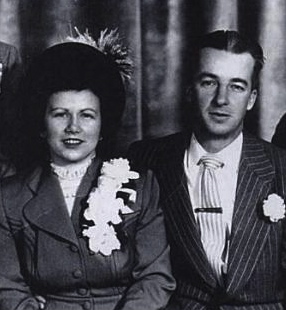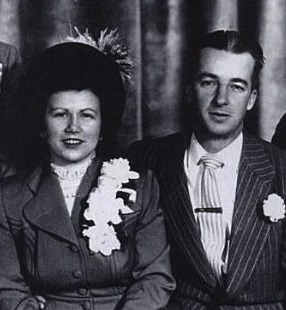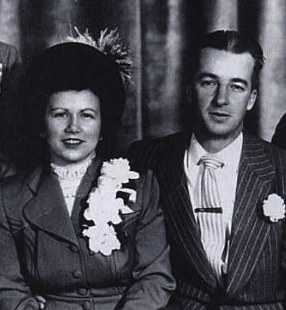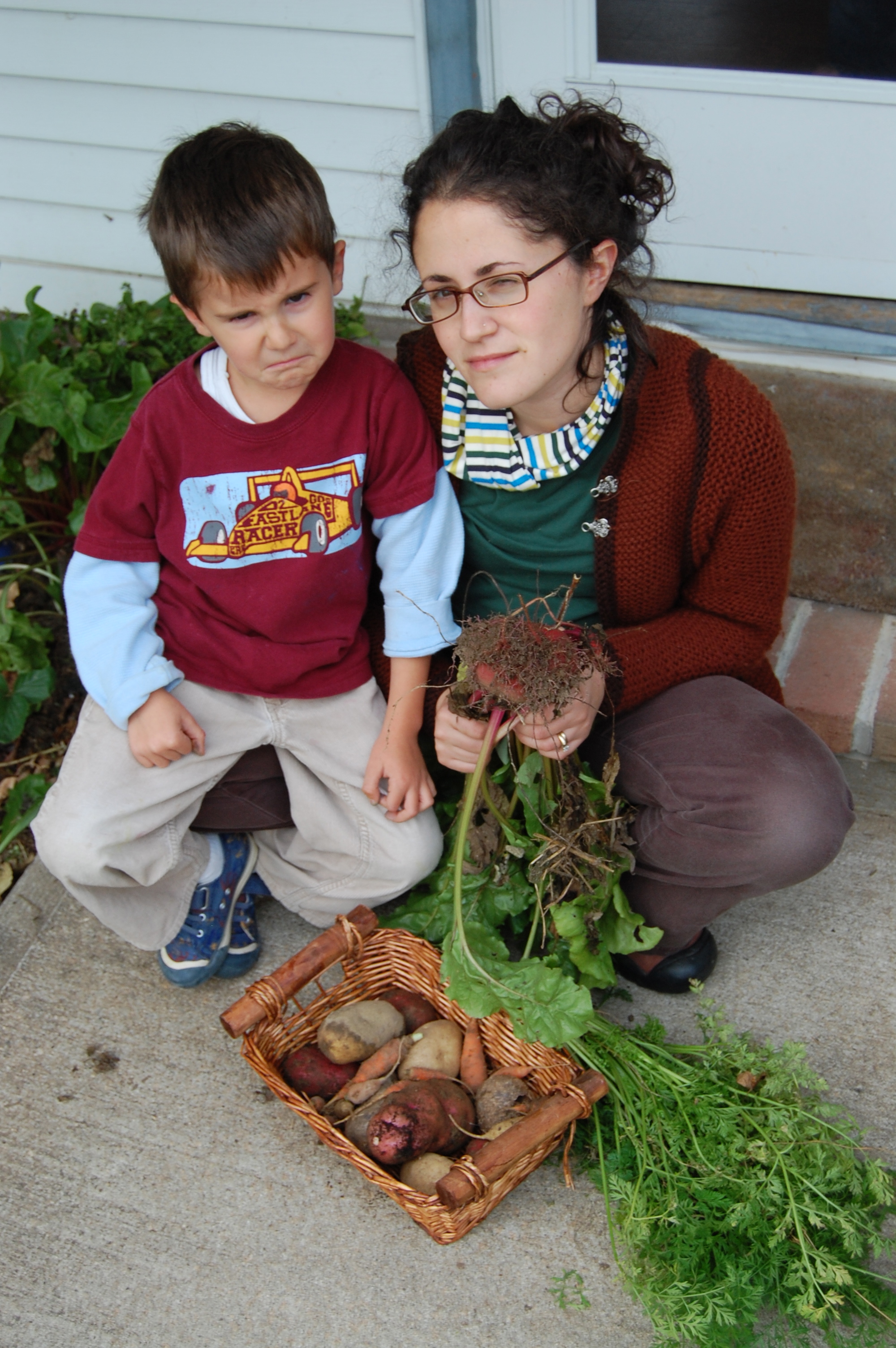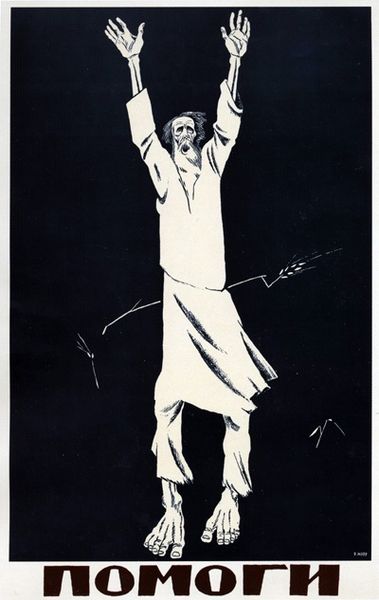If you have been reading Eat With Joy for a while you’ll know of my fondness for two very old friends of mine, whom I’ve referred to here as Mr. and Mrs. S.
That’s them on their wedding day in 1949–after Edie (Mrs. S.) had served as an Army nurse on a psychiatric unit and after Jack (Mr. S.) had spent nearly four years in military hospitals following a serious injury sustained to his leg on Iwo Jima.
{They were married in the Episcopal church, a three minute walk from my home, and I was always amused when Jack got to the part in the story of their wedding where the rector asked them to kneel. His leg had fused into one long bone–no knee–after his injury, and so he couldn’t kneel. “Can’t kneel,” he said. So they just skipped that bit.}
There is so much I could say about these people. About their kindness and courage and virtue. About how my parents loved them as if they were their own parents; about how they were grandparents to me from the time I was 7. About how my tiny son, undaunted by Jack’s blindness and skin afflictions, climbed up to plant a big kiss on his lips during one of our Saturday breakfasts (which later turned into Saturday dinners.)
About how two weeks from now will mark 92 years since his birth.
And about how, on Friday, he died in the nursing home, holding Edie’s hand.
This kind of death–when a person is very old, when they’ve been very sick and in great pain, when they share our faith and belief in the resurrection of the dead–this kind of death is sometimes shrugged off:
“At least they’re not suffering.”
“He had a good, long life.”
“We will see him again.”
Even when such observations express some truth, they irk me for the following reasons:
1. Death is an enemy, not a friend
Don’t know about you, but I’ve attended too many Christian funerals that leapfrogged over the horror of death to get to the promise of the resurrection. (“I’m happy for brother so and so that he’s with Jesus!”)
Have you noticed that in these contexts, old, sturdy, and thoroughly appropriate words like “death” and “funeral” are conveniently left out in favor of “passed away,” “went to be with the Lord,” “homegoing,” and (my most-hated) “graduation”?
Sorry, but even a tradition that holds fast to the hope of the resurrection shouldn’t shy away from calling death what it is–what the Bible calls it, for goodness’ sake–an enemy, an evil, a wicked and grievous thing.
2. Grieving a death thoroughly is not un-Christian
I have never had the chance to be at a funeral that was primarily attended by people of African-American heritage, but I’m told that keening—crying out and wailing–is an important part of the funeral in this tradition, and this sounds good to me. It isn’t “grieving without hope.” It isn’t denying the resurrection. It’s a practice that gives full outward expression to grief–“real emotions in real time,” as my dad puts it–and that’s a healthy thing. Where on earth did we get the notion that the ‘Christian’ thing to do is put on a happy face for funerals (excuse me, “homegoings”) and pretend like it’s no big deal, ’cause we’ll catch up with ‘ol Jack at the End of All Things?
3. Losing people you love hurts.
Doesn’t matter if they were old, or sick, or in pain; if the death was peaceful, painless, expected. Death ends our ability to commune with our beloved ones, and trusting in the promise of Resurrection doesn’t erase that loss–they have still gone, as Shakespeare wrote, to that “undiscovered country from whose bourn [border] no traveler returns.”
Plus, love doesn’t listen to stupid reasons.
I keep thinking of this interview I heard with Jean Vanier, who helped found the L’Arche communities. He tells of a woman who was severely disabled–blind, unable to speak, incontinent, needing to be fed, dressed, everything. And she had been a part of their community for 30 years and was in her 70s. One day a woman visited the house and asked:
” ‘Oh, what is the point of keeping Françoise alive?’ And the leader of the little house said, ‘But madam, I love her.‘ “
And I loved Jack. So I will mourn, not without hope, but still I will mourn.
What about you? What place does mourning and grief have in your experiences of faith and life–and death?
Swift to its close ebbs out life’s little day;
earth’s joys grow dim; its glories pass away;
change and decay in all around I see;
O thou who changest not, abide with me.

